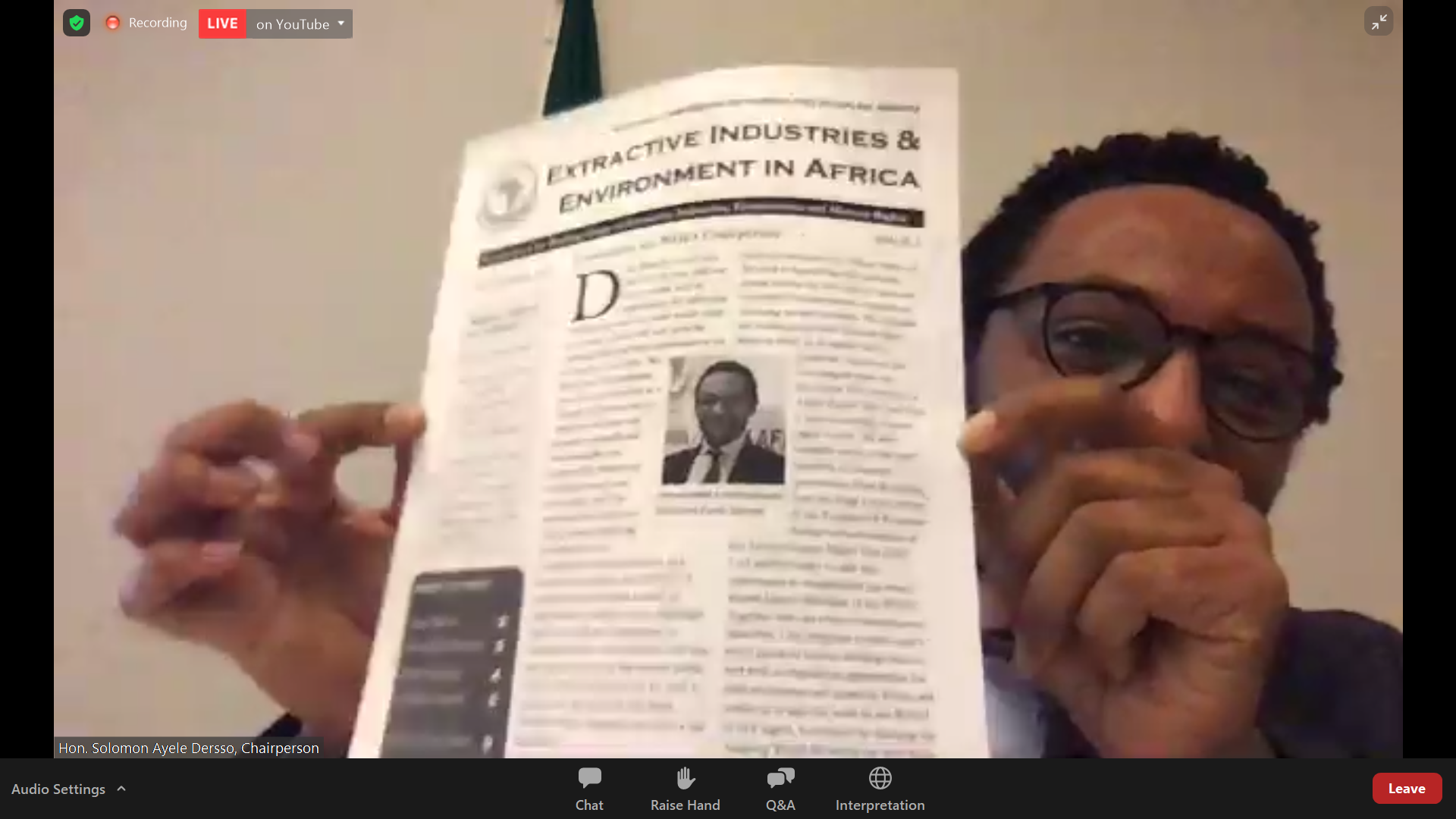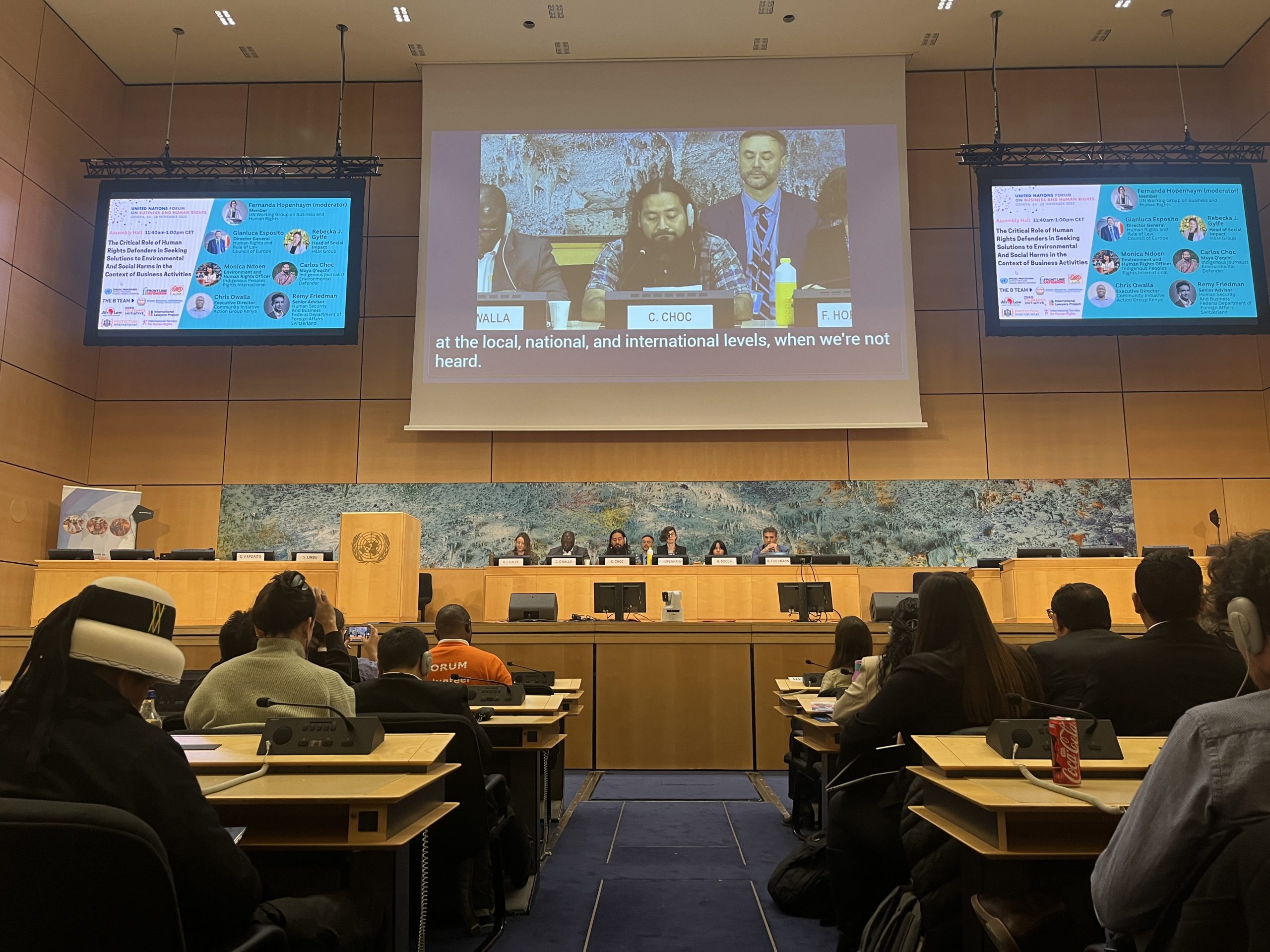On 20 November, the panel on Extractive Industries and illicit financial flows in Africa took place online. The African Commission on Human and Peoples’ Rights (the Commission), through its Working Group on Extractive Industries, Environment and Human Rights in Africa (WGEI) has for some time been engaged with the various human and peoples’ rights challenges in the extractive industries, and also arising from illicit financial flows (IFF) specifically. In 2013, the African Commission adopted resolution 236, in which it clarifies the link between capital flight, tax evasion and human rights and calls upon State Parties to review their domestic laws and policies with the aim of combatting illicit financial flows. In its landmark resolution 367 on the Niamey Declaration on Ensuring the Upholding of the African Charter in the Extractive Industries Sector, the Commission called on States to establish regional mechanisms to fight IFF.
In light of its various engagements on this subject, the aim of this panel was to review the links between extractive industries and IFF, including by drawing on the insights from the Economic Development in Africa Report 2020 by UNCTAD on the serious challenge of IFF from Africa, the human and peoples’ rights consequences of IFF and the ways in which different stakeholders, including States as primary duty bearers, can cooperate to curb the loss of African wealth.
The panellists included a member of the ACHPR working group on extractive industries (WGEI), a representative of the African Peer Review Mechanism (APRM) and a Mr Junior Davis, lead author of the UNCTAD Report.
Junior Davis, lead author of the UNCTAD report, highlighted that Africa annually loses $50 billion through IFF. The extractive industries are a major source of illicit financial flows from Africa.
During the review process of each States, following country visits, the APRM produces comprehensive reports on their economic performance. “Lack of transparency and accountability creates economic problems and are amongst the reasons why countries with abundant resources are underperforming economically” noted Mishack Mutize, Head of Division African Credit Rating Agency Unit APRM.
Damilola Olawuyi, expert member of the WGEI, provided some background on the work of the WGEI on IFF and the need for a human rights perspective in legal reforms to address IFF in the extractive industries. “Corruption, money laundering and tax evasion remain key problems and key routes through which funds leave Africa illicitly” said Olawuyi. IFF are not only a development problem but, indeed, a human rights problem. Unfortunately, sesources that could be used to develop the continent continuously found their way out of Africa. How can human rights be achieved when corruption is prevalent? The extractive industries are a major source of illicit financial flows from Africa. States have the responsibility to enact legislation and establish rules and guidelines.
Finally, this panel was also the opportunity to launch the third edition of the WGEI Newsletter, which has been published since 2018. This annual newsletter of the WGEI reports on the activities of the Special Mechanism and also contains substantive articles on thematic areas of relevance to the WGEI’s mandate.
Contact : Adélaïde Etong Kame, Africa Programme Manager, [email protected]
Photo : ISHR




